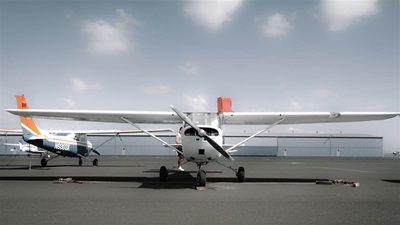Navigating estate planning for aircraft owners
For most pilots, owning their own aircraft is the culmination of a lifelong dream. However, failure to have an appropriate estate plan after your passing can create financial and legal nightmares for your family and create unfavorable conditions for the transfer of your airplane to your loved ones.

Most have heard about the importance of an estate plan, but what about how important it is to have one customized to include your aircraft? Whether you own outright, have a partnership or fractional interest, it’s essential to specifically address what happens to your aircraft after your final flight.
First, it is key to make sure that your asset is titled appropriately. Many people hold aircraft in LLCs for liability protection and to accommodate split-ownership and use arrangements. If your aircraft is owned by an LLC, it is important to make sure that there are provisions in the operating agreement, or in a separate buy-sell agreement, that deal with the transfer of the interest. Be sure the buy-sell provisions are appropriately funded, for example with life insurance, and there is liquidity that will be available to support the terms of the desired transition.
Sometimes people title aircraft in their individual name, but to do so could trigger a probate proceeding to transfer it. Probate is a public service, and can be an expensive and time-consuming process to transfer assets held in the name of a deceased person to the designated beneficiaries in either a will, or by state statute, also known as intestate succession. If your airplane is tied up in a court proceeding before it can be sold, it could take months and during that time, your executor will be responsible for the expenses, maintenance and upkeep before your executor has the legal ability to transfer your aircraft to a new buyer or beneficiary.
A trust is another way to title your aircraft. If owned by a trust, it will avoid going to probate and you can customize the provisions of your trust to handle the maintenance and the transition of your aircraft in the manner and to whom you wish in the trust document. For confidentiality and liability, it may be better to create a separate trust for your aircraft, and not to use the same trust that handles your other assets.
 It's also important to carefully choose the trustee for a trust or an executor, in case your aircraft ends up in your probate estate. You want to choose someone who knows how to manage an aircraft to make sure that it is taken care of properly during the administration and transfer period. Also, be sure that your plan includes enough available cash to handle the maintenance expenses during the transition to avoid a rush sale, potentially at a deep discount, of your aircraft in the event that the expenses exceed the available cash.
It's also important to carefully choose the trustee for a trust or an executor, in case your aircraft ends up in your probate estate. You want to choose someone who knows how to manage an aircraft to make sure that it is taken care of properly during the administration and transfer period. Also, be sure that your plan includes enough available cash to handle the maintenance expenses during the transition to avoid a rush sale, potentially at a deep discount, of your aircraft in the event that the expenses exceed the available cash.
Be sure to do an appropriate preflight check to ensure your estate plan will successfully land your family and your aircraft where you intend, and give you peace of mind in the meantime.
